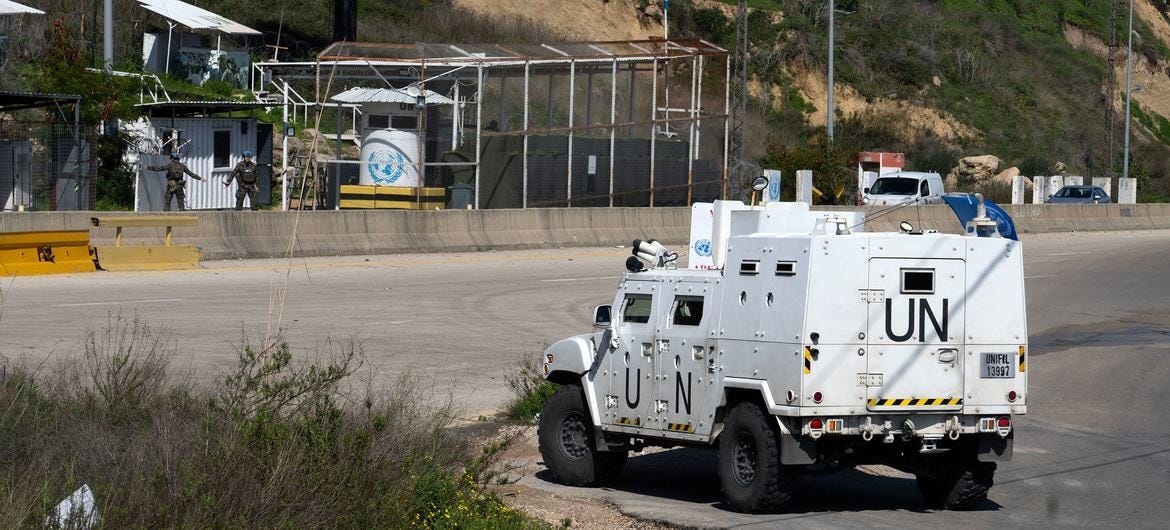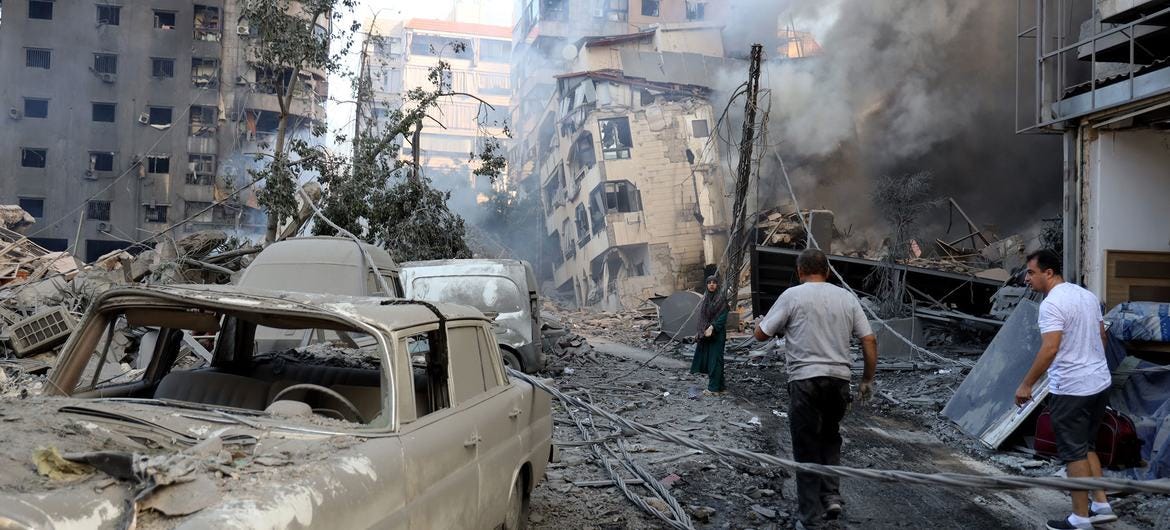UN peacekeepers come under Israeli attack in Lebanon
UN secretary general concerned about possible war crimes
In a statement from the front-line of the war between Israel and Hezbollah in southern Lebanon, the United Nations Interim Force in Lebanon (UNIFIL) said they had come under repeated attack from Israeli armed forces (IDF) on Sunday, describing the attacks as “shocking violations of international law”.
“At around 4:30 a.m., while peacekeepers were in shelters, two IDF Merkava tanks destroyed the position’s main gate and forcibly entered the position. They requested multiple times that the base turn out its lights. The tanks left about 45 minutes later after UNIFIL protested through our liaison mechanism, saying that IDF presence was putting peacekeepers in danger,” UNIFIL reported.
“At around 6:40 a.m., peacekeepers at the same position reported the firing of several rounds 100 metres north, which emitted smoke. Despite putting on protective masks, fifteen peacekeepers suffered effects, including skin irritation and gastrointestinal reactions, after the smoke entered the camp. The peacekeepers are receiving treatment.”
UNIFIL said logistical supply routes were also blocked by the IDF, as “yesterday [Saturday], IDF soldiers stopped a critical UNIFIL logistical movement near Meiss ej Jebel, denying it passage. The critical movement could not be completed.
“For the fourth time in as many days, we remind the IDF and all actors of their obligations to ensure the safety and security of UN personnel and property and to respect the inviolability of UN premises at all times. Breaching and entering a UN position is a further flagrant violation of international law and Security Council resolution 1701 (2006).”
The Blue Line
UNIFIL has been stationed in southern Lebanon since 1978. Following the invasion of Lebanon by Israel in 2006, UN Resolution 1107 authorised up to 15,000 UN troops to be stationed in the area to monitor cessation of hostilities, and among other things, to support the Lebanese armed forces as they deployed throughout the South, including along the Blue Line, as Israel withdrew its forces.
The so-called Blue Line stretches 120 kilometres along Lebanon’s southern frontier where UNIFIL peacekeepers are stationed at several posts along ‘the line of withdrawal’.
“Any deliberate attack on peacekeepers is a grave violation of international humanitarian law and resolution 1701. UNIFIL’s mandate provides for its freedom of movement in its area of operations, and any restriction on this is a violation of resolution 1701,” they reiterated on Sunday.
War crime
Stephane Dujarric, a spokesperson for UN Secretary-General Antonio Guterres, later on Sunday denounced the attacks. “UNIFIL personnel and its premises must never be targeted," he said. Attacks on peacekeepers violate international law and “may constitute a war crime,” he noted after it emerged that five UNIFIL staff had been injured by IDF attacks on their positions since Thursday.
Two peacekeepers were injured on Friday after explosions occurred close to a UN observation tower, with one having to undergo emergency surgery to remove a bullet, following an incident on Thursday when an Israel Defense Forces Merkava tank fired at an observation tower at UNIFIL’s headquarters in Naqoura, directly hitting it and injuring two additional personnel,” the UN reported.
According to UNIFIL staff, security walls at their position near the Blue Line in Labbouneh, “collapsed when an IDF vehicle hit the perimeter and IDF tanks moved close to the UN post.” UNIFIL has suffered 326 fatalities since 1978.
Humanitarian crisis
Under constant bombardment from Israel, the humanitarian situation is fast deteriorating in Lebanon. According to UN officials, over 2,100 people have been killed there since the war started last year, mostly by IDF aerial bombardment, drone attacks and booby-trapped devices, while over a million people have fled their homes.
“On Thursday, airstrikes – without warning – targeted densely populated areas in Beirut’s central district, marking the third major attack on the city since late September,” the UN Office for the Coordination of Humanitarian Affairs said, noting that 22 were killed, and hundreds wounded in the attacks. Ravina Shamdasani of the Office of the High Commission for Human Rights confirmed that the “densely populated capital of Beirut “is increasingly being hit by Israeli airstrikes” which have left more than 2,100 dead over the past year.
“We see an enormous tragedy in Lebanon, and we must do everything to avoid an all-out war In Lebanon,” Guterres said on Sunday at a summit in Vientiane, Lao People’s Democratic Republic, where he reiterated calls for an immediate ceasefire.







